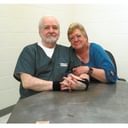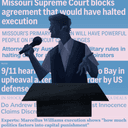A capital jury in Philadelphia illustrated the divisiveness and arbitrariness of the death penalty when it could not decide on a sentence for Rasheed Scrugs, who admitted to killing Police Officer John Pawlowski. The atmosphere in the jury room became “horrible” according to one of the jurors. Jurors almost immediately reported no chance for a verdict, as deliberations began with seven for life in prison and five for death by lethal injection. Some jurors reportedly refused to take part in the deliberations by “remaining silent or walking out to the lavatory.” Juror Fred Kiehm described the deliberations as: “Extremely tense… screaming, yelling, at one point I thought someone might break furniture.” Some jurors, Kiehm said, were influenced by one of Scrugs’ “mitigating factors” for life in prison: he had four sons whom the jurors did not want to grow up with their father on death row.
“I just never figured that it would break down the way that it broke down,” said Deputy District Attorney Edward McCann. “It’s a whole different ball game when you go into that room and it’s your responsibility.”
Defense attorney David Rudenstein noted that deadlocks in such cases aren’t unusual: “Jurors get much more entrenched on death cases than they get entrenched on the question of guilt or innocence… It’s a lot to ask of people.”(J. Slobodzian, “Jurors in Philadelphia cop killer trial say they were deadlocked from the start,” The Philadelphia Inquirer, November 11, 2010). See Arbitrariness and Life Without Parole.



